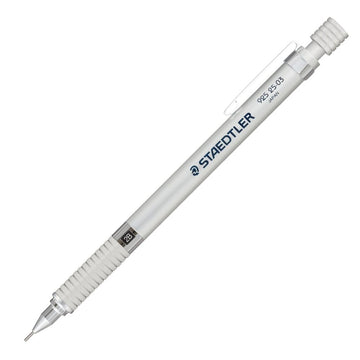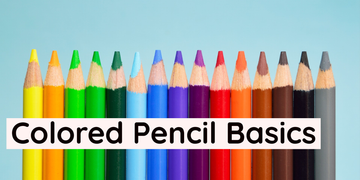
The Complete Guide to Paper Sizes
Whether you're an artist, designer, architect, or stationery enthusiast, understanding paper sizes can help you pick the optimal format for your projects. In this guide, we'll cover the common paper size systems and dimensions you need to know.

A Series
The ISO A series is a set of international paper sizes used for documents, printing, posters, and more. The dimensions follow a simple mathematical ratio. Each size is defined by halving the sheet area of the next larger size. For example:
- A0: 33.1 x 46.8 inches
- A1: 23.4 x 33.1 inches
- A2: 16.5 x 23.4 inches
- A3: 11.7 x 16.5 inches
- A4: 8.3 x 11.7 inches
- A5: 5.8 x 8.3 inches
The A series formats gradually get smaller while keeping the same width/height proportions. This allows printing across multiple sizes.
B Series
The ISO B series formats are also defined mathematically, derived from halving the A0 sheet area. B sizes have the same height as the corresponding A size but differ in width. For instance:
- B0: 39.4 x 55.7 inches
- B1: 27.8 x 39.4 inches
- B2: 19.7 x 27.8 inches
- B3: 13.9 x 19.7 inches
- B4: 9.8 x 13.9 inches
- B5: 6.9 x 9.8 inches
B formats are less common than A sizes but useful for certain print projects.
North American Paper Sizes
In the US and Canada, the most widely used sizes include:
- Letter - 8.5 x 11 inches
- Legal - 8.5 x 14 inches
- Ledger/Tabloid - 11 x 17 inches
- 12 x 12 inches - Good for square artworks
Architects, designers, and engineers often utilize larger formats like:
- Arch E - 36 x 48 inches
- Arch D - 24 x 36 inches
- Arch C - 18 x 24 inches
Other Common Formats
Some other paper dimensions to know:
- Postcards - 4.25 x 5.5 inches (standard US size)
- Business cards - 3.5 x 2 inches
- Wallet photos - 2 x 3 inches
- Index cards - 3 x 5 inches or 4 x 6 inches
So the next time you need paper for a project, consult this guide for the ideal size! Understanding dimensions allows you to plan your artwork, printing, framing, and more.
Whether you're an artist, designer, architect, or stationery enthusiast, understanding paper sizes can help you pick the optimal format for your projects. In this guide, we'll cover the common paper size systems and dimensions you need to know.

A Series
The ISO A series is a set of international paper sizes used for documents, printing, posters, and more. The dimensions follow a simple mathematical ratio. Each size is defined by halving the sheet area of the next larger size. For example:
- A0: 33.1 x 46.8 inches
- A1: 23.4 x 33.1 inches
- A2: 16.5 x 23.4 inches
- A3: 11.7 x 16.5 inches
- A4: 8.3 x 11.7 inches
- A5: 5.8 x 8.3 inches
The A series formats gradually get smaller while keeping the same width/height proportions. This allows printing across multiple sizes.
B Series
The ISO B series formats are also defined mathematically, derived from halving the A0 sheet area. B sizes have the same height as the corresponding A size but differ in width. For instance:
- B0: 39.4 x 55.7 inches
- B1: 27.8 x 39.4 inches
- B2: 19.7 x 27.8 inches
- B3: 13.9 x 19.7 inches
- B4: 9.8 x 13.9 inches
- B5: 6.9 x 9.8 inches
B formats are less common than A sizes but useful for certain print projects.
North American Paper Sizes
In the US and Canada, the most widely used sizes include:
- Letter - 8.5 x 11 inches
- Legal - 8.5 x 14 inches
- Ledger/Tabloid - 11 x 17 inches
- 12 x 12 inches - Good for square artworks
Architects, designers, and engineers often utilize larger formats like:
- Arch E - 36 x 48 inches
- Arch D - 24 x 36 inches
- Arch C - 18 x 24 inches
Other Common Formats
Some other paper dimensions to know:
- Postcards - 4.25 x 5.5 inches (standard US size)
- Business cards - 3.5 x 2 inches
- Wallet photos - 2 x 3 inches
- Index cards - 3 x 5 inches or 4 x 6 inches
So the next time you need paper for a project, consult this guide for the ideal size! Understanding dimensions allows you to plan your artwork, printing, framing, and more.




